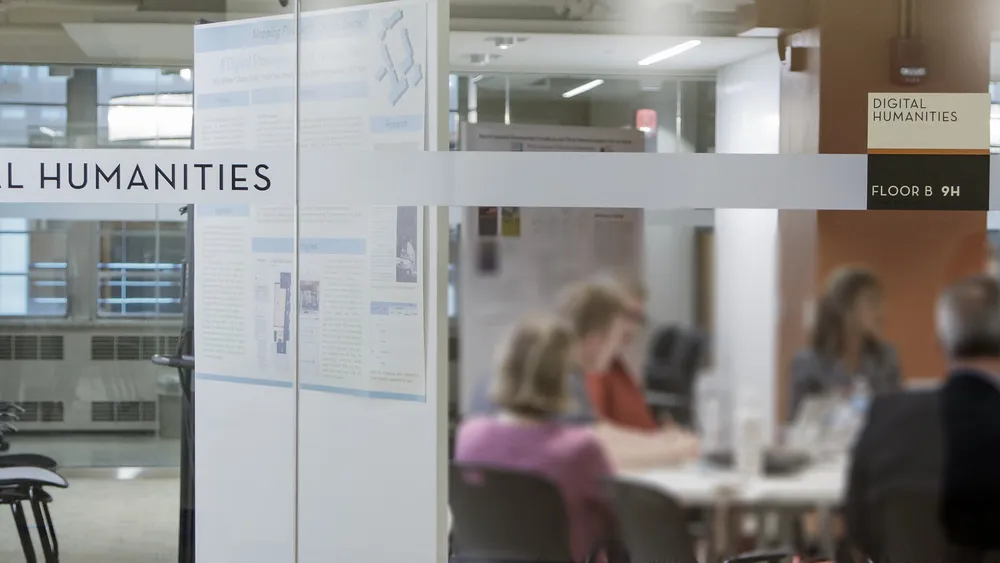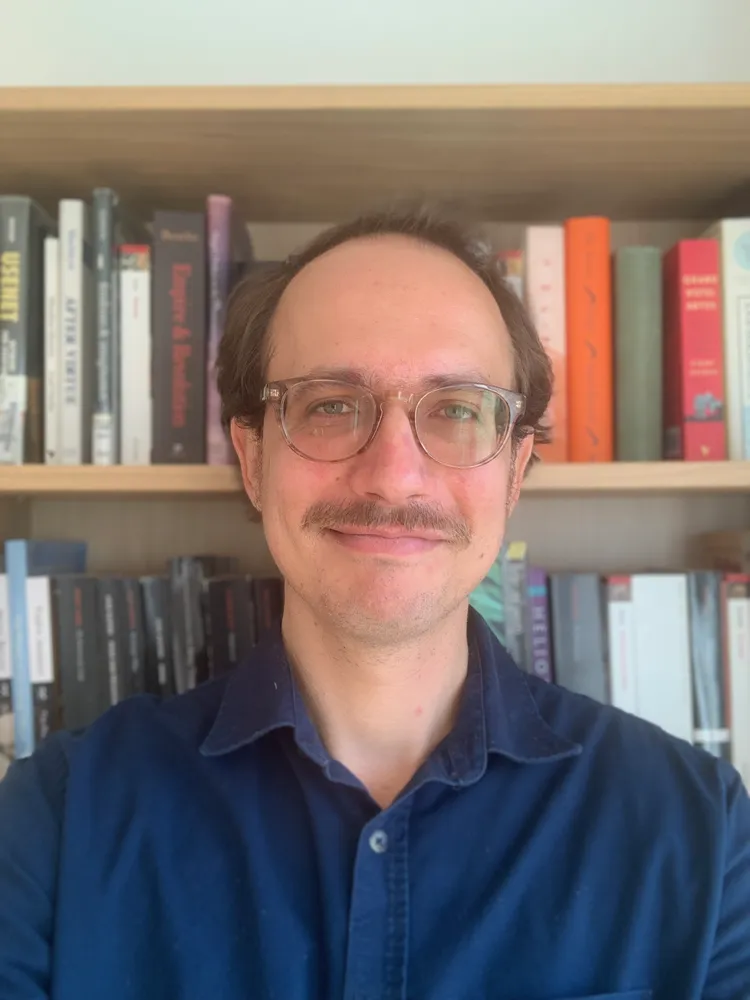Welcome, Ryan Heuser!
3 October 2022
Ryan joined the CDH as research software engineer last week. Learn more about his work!

Last week, we welcomed Ryan Heuser as our new research software engineer.
A scholar and teacher of English literature and digital humanities, Ryan comes to the CDH from King’s College, University of Cambridge, where he held a research fellowship. He has published and presented widely on topics in computational humanities, has taught DH courses at Cambridge and at Stanford University, and has served as instructor for workshops teaching DH skills. He earned his Ph.D. in English from Stanford.
Ryan told us about his book project, the origins of his DH interests, and more!

Tell us a little more about your role at the CDH.
As Research Software Engineer, I’ll be working closely with our Lead Developer Rebecca Koeser on new and ongoing digital humanities research projects as well as consulting with graduate students and faculty on their own work.
A founding member of the Stanford Literary Lab and longtime distant reader, I have focused my own research on natural language processing and machine-learning approaches to large-scale text collections.
As RSE, you will have one research and development day per week. What personal projects do you plan to work on?
I plan primarily to finish my book, Abstraction: A Literary History, which gives a new history of literary language as it evolves across centuries of early modern and modern English-language literature. I would also like to dedicate some of my R&D time to learning more about emerging generative text/image AI technologies and how they might impact digital humanities research.
How did you become interested in digital humanities?
I grew up in the ’80s and ’90s fascinated with the big clunky computers my father would bring home from his IBM-era software job. I started tinkering with BASIC and programming early on and loved the idea of being able to speak the computer’s language. But I was and am also an avid reader and decided to study literature in university. I never realized the two could be combined until I arrived at Stanford for graduate school. I was immediately fascinated, and convinced, by the motivating idea there that computation could help us study literature in entirely new ways.
How do you think your work so far will inform your work at the CDH?
As the CDH takes on new projects I would like to work with faculty PI who similarly have interests in natural language processing, text mining, machine learning, distant reading, or cultural analytics. Locally I hope to contribute to a flagship project of the CDH, the Princeton Prosody Archive, partly by contributing my experience in automatic prosodic analysis and methods of rhythmic and generic (verse/prose) detection.
What’s a favorite DH project you’ve encountered?
The go-to article I have these days for anyone wanting to know what computational methods can do for the study of literature is “The Transformation of Gender in English-Language Fiction” by Ted Underwood, David Bamman, and Sabrina Lee. It uses new ‘BookNLP’ software to detect how women and men are described by different words in thousands of novels over time, revealing even micro-linguistic gender histories, like the 20th-century gendering (masculinizing) of ‘grin’ and ‘chuckle’. To me, how can data such as this, so specific and small and yet so rich, not fascinate the literary-critical or humanist mind?
Ryan is not our only new staff member at the CDH. Read more about our new Computing Support Specialist, Aaron Dunn, who joined us in August.